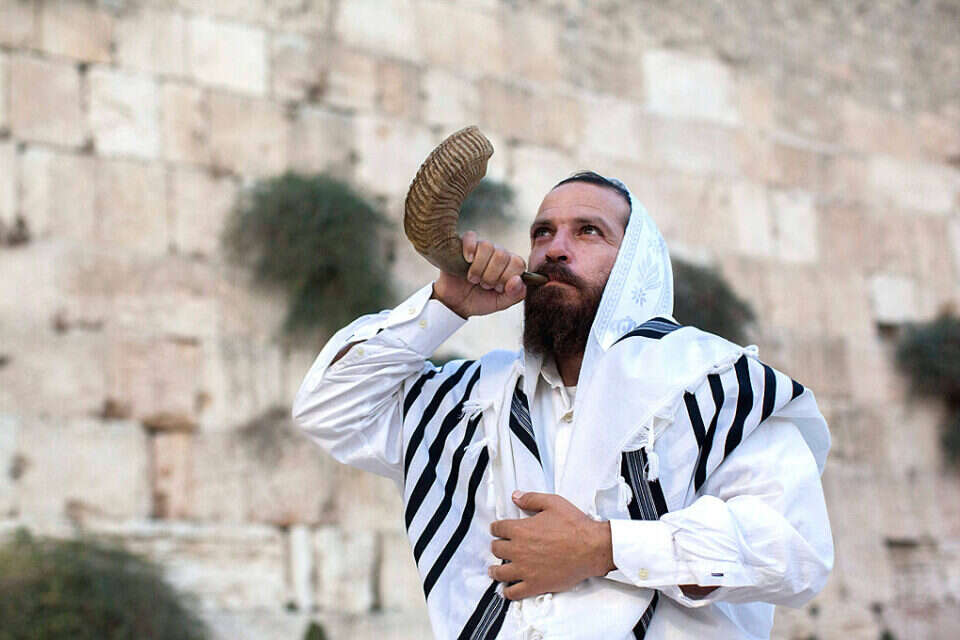In his book "Knowing how to forgive - about the healing power of forgiveness", Dr. Gerald G. Yampolsky defines the process of forgiveness as "giving up hope for a better future". This short and paradoxical sentence illustrates the futility and logic of the human tendency to hold grudges and become hardened Forgive, because the past cannot be changed.
As Yom Kippur approaches, Anat Rivlin, certified social worker, holding grudges without forgiving is actually agreeing to pay an emotional price, thus harming ourselves in the present and in the future.
Nelson Mandela, the former president of South Africa who freed his country from apartheid and winner of the Nobel Peace Prize, once said: "Holding a grudge is like drinking poison and hoping it will kill your enemies."
Forgiveness is a process that is easy to talk about, but difficult to do.
Many times the head says to forgive, but the soul is simply unable to do so.
It is important to understand: forgiveness is not meant to free the one who hurt us, it is meant to free us.
The intention is not to give legitimacy or justification to those who hurt us, but a desire to free us from unrelenting mental pain.
So why do we find it so difficult to forgive?
We have several good reasons for this.
The first is the need for control and security.
When we get hurt, it's important for us to make sure it doesn't happen again, that we don't get hurt again.
We tend to believe that if we continue to hold anger and aggression towards the one who hurt us, he won't do it again.
Through anger and resentment, we actually want to recover from the hurt.
The second reason is the need for protection and warding off evil.
In order to forgive others, a certain amount of empathy is required.
The so-called grudge distances, divides and separates us from evil, especially if the offender has not expressed remorse or acknowledged the injustice he caused us, which creates a perception of complete separation between good and evil.
The third reason is the need for justice.
Sometimes resentment is a form of revenge.
Injury versus injury creates an experience of justice, "measure for measure", and thus seeing the world as a moral and just place helps us feel more harmony and order.
So why should we forgive those who hurt us?
The desire to be freed from the shackles of anger.
Resentment has a "boomerang" effect: when we hold a grudge, we dedicate space inside our head to the offender, thereby freeing up an energetic "storage area" large enough for the feeling that we have been hurt.
Preoccupation with this limits us: we avoid meeting the abuser or communicating with him, and invest a great deal of mental and behavioral effort on the subject, perhaps too much.
An example of this can be seen in cases where we are offended by people who do not come to our events, and therefore, as revenge, we decide not to come to their event.
This decision is accompanied by a certain price that we cannot know in advance - and we also have to think about whether it is even worth allowing this injury to lead our lives this way.
In order not to give up connections.
Social, occupational and family ties are an extremely important resource.
Should you give up contact with a person because of a sentence said or a certain action?
No one is allowed to make mistakes?
Maybe we haven't seen the full picture?
To learn to forgive ourselves.
Our ability to forgive others opens a space of compassion within us.
When we forgive someone, we increase our ability to flex attitudes.
This channel of compassion is an opening to solid health in body and mind.
As mentioned, resentment is poison.
Forgiveness between two is also forgiveness between all the circles that surround them.
Resentment represents split thinking of good versus evil, but the truth is that we all have both parts.
We are not perfect.
If we agree to accept the complexity of the other, we can also accept our own complexity from a place of compassion and responsibility.
Forgiveness is not a word, it is
a process
.
It is a mature and humble process of being able to look at our lives from a bird's eye view.
This is a process of releasing shackles.
It requires us to "zoom out" and look up from the ledger.
To look with compassion at the human experience and to remember that oftentimes, harm is not intended to hurt but out of a desire to avoid pain.
Of course there are extreme types of evil that are unforgivable, we are not talking about them here.
We are all sometimes inconsiderate, selfish, want to act gently but act rudely or recklessly.
We should reduce the negative impact of the past on the present and not let the damage rule our lives.
We should also forgive so that we can be forgiven, because we are all one living human tissue.
Everything is reflected and comes back to us at the end of the day.
were we wrong
We will fix it!
If you found an error in the article, we would appreciate it if you shared it with us

